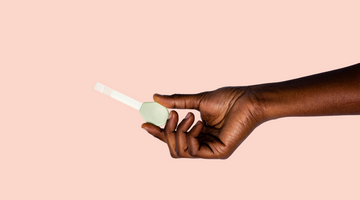Why do I keep getting UTIs?

Getting a urinary tract infection (UTI) is never fun. It can be even more frustrating and uncomfortable if you’re getting UTIs over and over again. Getting UTIs multiple times is referred to as having a recurrent UTI and is common. Specifically, this is diagnosed if you have two or more UTIs in a 6 month period or more than 3 UTIs in 1 year. We will walk you through everything you need to know about recurrent UTIs and what you can do to help manage and steps you can take to prevent them from occurring.
What is a UTI?
UTIs are the second most common infection in the US. A urinary tract infection occurs when bacteria enter the urethra, travel up the urinary tract, and multiply. As the bacteria spread, your urinary tract becomes inflamed and infected. 90% of the time, this bacteria is E. coli. E. coli normally lives without harm in our intestinal tract but becomes harmful once it enters the urinary tract.
With a UTI, you’ll notice a strong and frequent urge to urinate, a painful burning sensation when you do, and lower back or stomach pain. This may also be accompanied by the increased frequency of urination and/or an odor in your urine. The symptoms are very similar to those of a bladder infection but should be less severe. If you are experiencing any of these symptoms and suspect you might have a UTI, make an appointment with your primary care provider.
uti-complete-comboWhy do I get so many UTIs?
People with vulvas tend to get more UTIs because they have shorter urethras that are closer to the anus, making it easier for bacteria to reach the urethra and cause an infection in the urinary tract. Around 50-60% of people with vulvas will experience a UTI at some point in their lives, and almost half of these will get another one in the next 6-12 months.
There are a few different reasons why some people experience recurrent UTIs. One of the strongest risk factors is the frequency of sexual intercourse. Also, some conditions predispose people to be at an increased risk for getting a UTI such as Diabetes. Additionally, a UTI may occur again if you did not finish a previous course of treatment.
To lower your chances of getting frequent UTIs, be sure to finish your UTI treatment course, even if your symptoms go away. UTIs that do not fully resolve are much more likely to come back. Some other steps you could take are ensuring that you are wiping from front to back after using the restroom, staying hydrated, and urinating before and after intercourse.
How can I manage and lessen recurrent UTIs?
With antibiotics, UTI symptoms may start going away after 24-48 hours. It is important to seek treatment for a UTI because if left untreated, it can spread and cause serious infections in other parts of your urinary tract such as your bladder or kidneys. Should the infection spread, you are at risk for serious complications that would potentially require you to have to go to the hospital for additional treatment and management.
There are also home remedies that may assist with resolving a UTI while you wait for treatment from your primary care provider. Cranberry juice provides many general health benefits improving heart health, digestive health, post-menopausal health, and, of course, urinary tract health. Though not completely conclusive, there have been studies on the effect of cranberry juice on UTIs that show that metabolites in cranberry juice prevent E. coli (the primary bacterial cause of UTIs) from sticking to other bacteria. You could also consider taking cranberry supplements with 36 mg of PACs (the important ingredient) which some doctors recommend to reduce the frequency of UTIs. As always, consult with your primary care provider about at-home options to help you prevent recurrent UTIs.
Winx Health is home to a line of UTI products, including a UTI daily protection supplement. These supplements have 4 key ingredients (Vitamin C, cranberry, D-mannose, and turmeric) that work by limiting the growth of bacteria development and growth in your urinary tract. Taken twice daily, these supplements provide your bladder and urinary tract with extra protection from infection.
Other than protecting against UTIs, there are also things you can do to manage the pain and discomfort of recurrent UTIs. Phenazopyridine hydrochloride is a pain reliever that numbs the pain in the lower urinary tract (where you typically experience symptoms of a UTI) that can be found in our UTI fast-acting pain relief supplements. This works by soothing pain and itch symptoms while also calming a constant urge to pee.
The most important thing to help protect against UTIs is to stay hydrated. Water and liquids dilute the urine moving through your urinary tract and make it harder for unwanted bacteria to reach the cells that line urinary organs. If you suspect you have a UTI or suffer from recurrent UTIs, consider taking a UTI test at home and connect with a doctor to determine the best course of treatment.
Peeing after sex and drinking cranberry juice isn’t always the answer to treating UTIs, especially if they are recurrent. Winx Health aims to reduce the pain and frequency of your UTIs with our UTI products. Winx Health's new UTI test & treat is the only over-the-counter at-home test with digital results and access to same-day prescription treatment, without a trip to the doctor’s office.
Winx Health also provides fast-acting pain relief, and a daily protection supplement. Order today and make UTIs a thing of the past.
Keep Reading

I don't want to get pregnant under this administration, what do I do?
Mar 19

Six weeks is too soon: the reality of abortion bans
Feb 24

I hate my vagina: the labiaplasty epidemic
Feb 18








